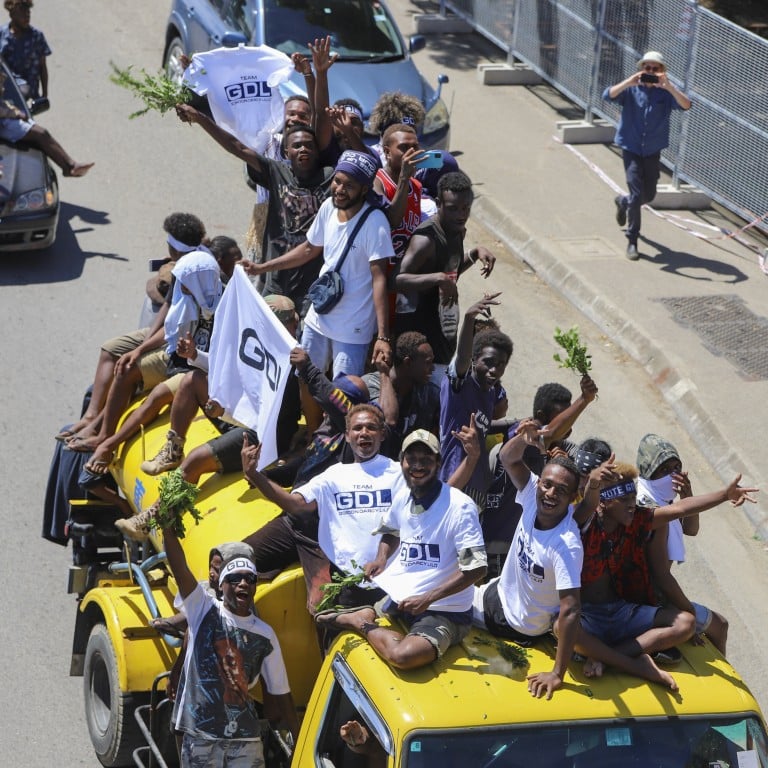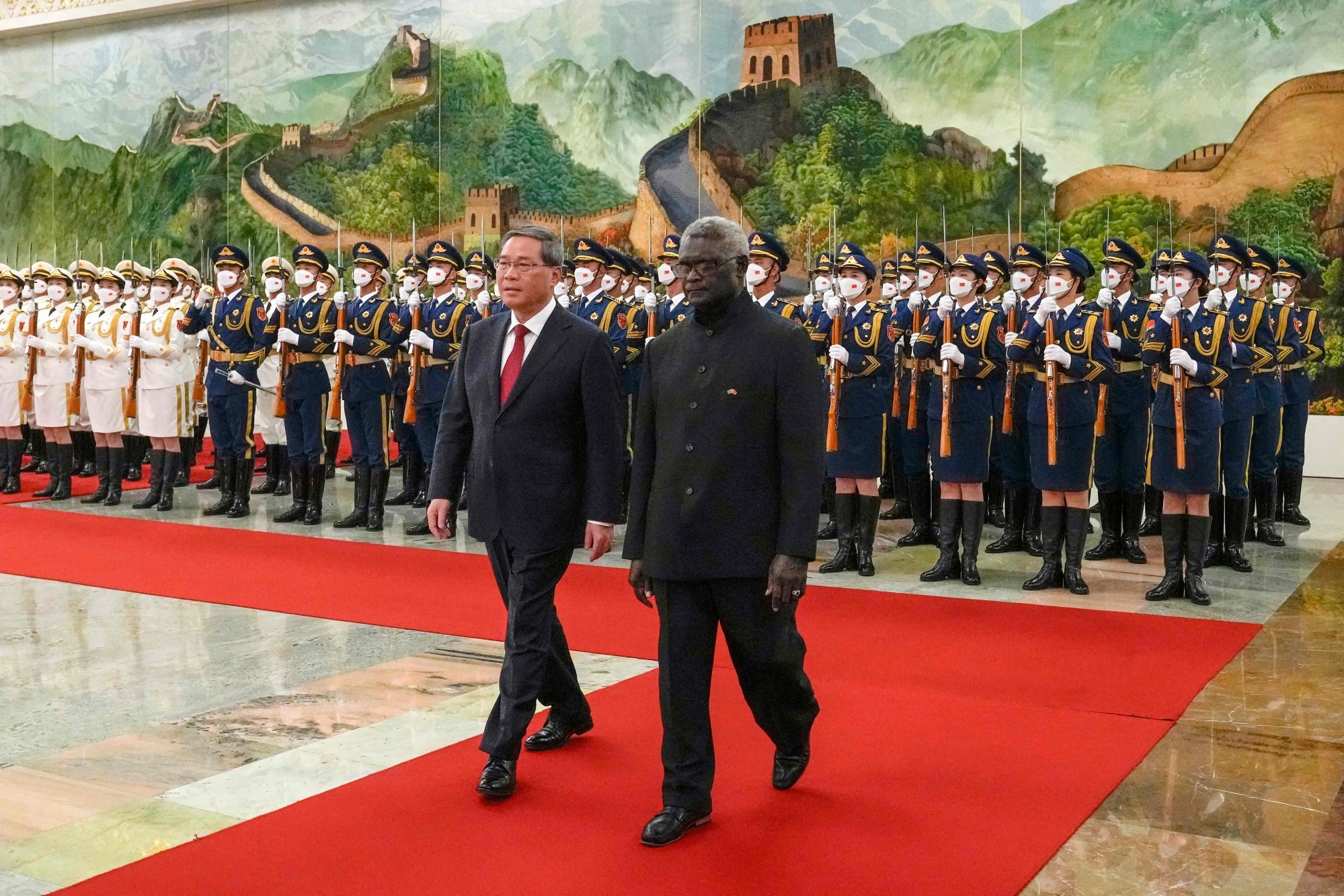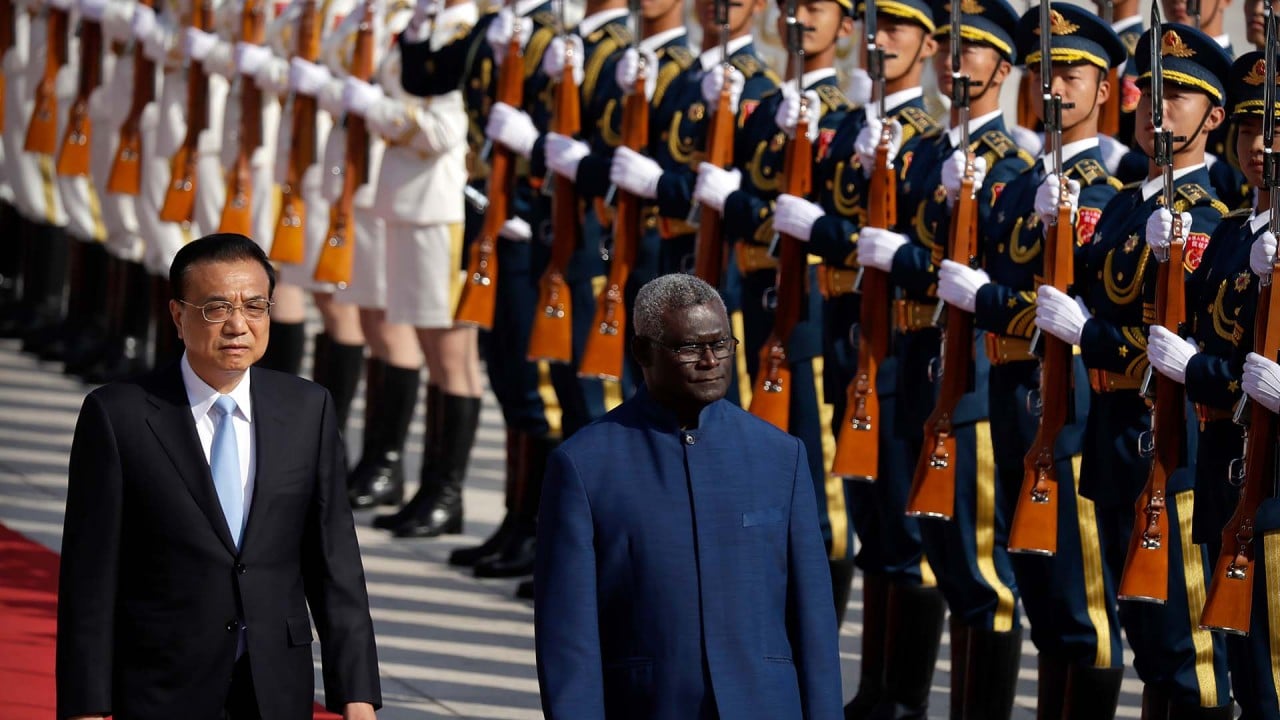
Solomon Islands election: China security ties in focus as tiny Pacific nation heads to the polls
- Geopolitics looms large over the polls in Solomon Islands, where Beijing has been vying for influence with Washington and its allies for years
- But for voters struggling to make ends meet, issues much closer to home like healthcare, education and unemployment may decide Wednesday’s election
Dispersed over 2,000km (1,240 miles), home to around 750,000 people – a quarter of them living in poverty – and increasingly coveted for its position in the southwestern Pacific Ocean, the Solomon Islands is wooed by China and the US as a potential ally.
Solomon Islands prepares for election in shadow of China’s influence
“It is an important election. People are calling for change” said Benjamin Afuga, an administrator of the Yumi Toktok Forum, one of the largest public Facebook groups in the Solomon Islands.
Posts on the forum provide a snapshot of the key concerns of voters such as healthcare, education, unemployment and changes to outdated laws.
Sogavare’s critics say he is becoming increasingly authoritarian and has failed to be transparent with the electorate over the terms of the quid-pro-quo agreement with China.

But Meg Keen, director of the Lowy Institute’s pacific islands programme, said the elections “will be fought on local issues, not geopolitics”.
“For those struggling to make a living and manage the rising cost of living, issues such as jobs, health and education services and transport are at the top of the list.”
Sogavare’s challengers, including opposition leader Matthew Wale, are urging the nation to realign by recognising Taiwan once more and returning to the fold with traditional partners Australia and the US.
Solomon Islands’ pro-China leader pledges to continue Australia balancing act
The election outcome and then the appointment of the prime minister are expected to take weeks.
“In the meantime, we can hope that calm is maintained and the public judges the elections to be fair,” Keen said. “The last thing Honiara [the capital of the Solomon Islands] needs is more unrest.”
Washington is also busy with its plans to deepen its engagement in the region. Last month, the US approved US$7 billion in aid to be dispersed to Palau, Federated States of Micronesia, and the Marshall Islands over 20 years for their Compact of Free Association, which grants America exclusive military access rights to the regional countries’ air, land and sea spaces.
If Sogavare ends up as PM after the election, he will almost certainly continue to maintain a close relationship with China
Beijing views Taiwan as a renegade province that should be reintegrated into mainland control, by force if necessary. While many nations, including the US, do not officially acknowledge Taiwan as an independent state, they oppose any use of force to alter the existing status quo.
“If Sogavare ends up as prime minister after the election, he will almost certainly continue to maintain a close relationship with China,” said Terence Wood, a researcher at Australia National University’s development policy centre who studies Solomon Islands elections.
“If one of his opponents – such as Matthew Wale, Peter Kenilorea Jnr, or possibly even Gordon Darcy Lilo – ends up as prime minister, it is possible that they will take a more cautious path with respect to China.”
Grass-roots dispersal of cash and other forms of patronage could play a pivotal role in deciding who will become prime minister, according to analysts.
“The most important impact for the average person will be the client list of local politics: if they manage to vote for a candidate who is inclined to help them, and if that candidate is elected, they will receive some direct material assistance,” Wood said.
If Sogavare were to prevail in the election, China is likely to step up its security presence in the Pacific region, including the Solomons, said Alfred Oehlers, an academic at the Daniel K. Inouye Asia-Pacific Centre for Security Studies in Honolulu.
“Strategically, expect to see the development of dual-use air and naval facilities [by China].”

